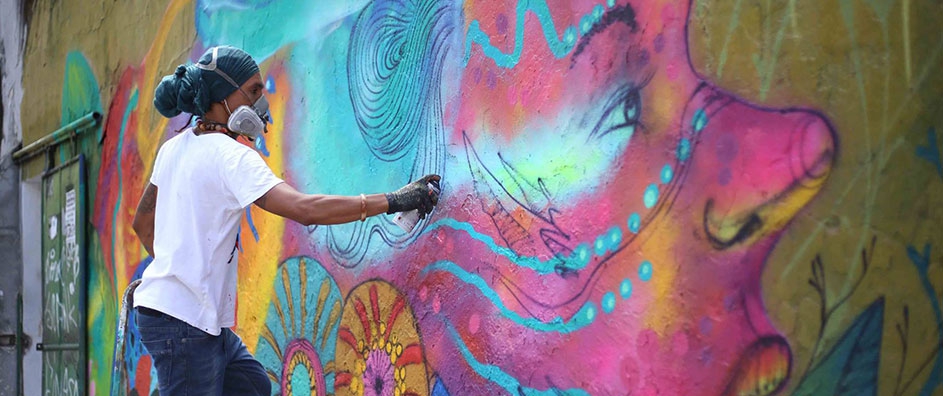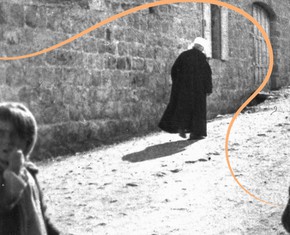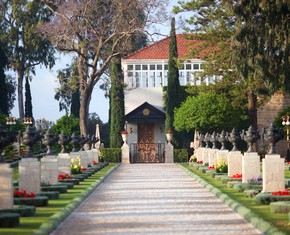The views expressed in our content reflect individual perspectives and do not represent the authoritative views of the Baha'i Faith.
In 1983, they hung ten Iranian Baha’i women for the crime of belonging to the Baha’i Faith.
Word of this seemingly inexplicable travesty of justice spread quickly around world, and calls for clemency came from many quarters, including then-president of the United States Ronald Reagan. Headlines around the world bore witness: “Now They Are Hanging Women;” “Baha’i Women Sing and Pray on Way to Meet Hangman;” and editorials screamed “genocide,” “bloodletting,” and “reign of terror.”
Unmoved, the head of the Islamic Revolutionary Court of Shiraz rationalized the death sentences by publicly claiming, “These individuals who have been sentenced to execution are active members of Baha’ism, from whom simple minded people were not safe; their dependence on devils inside and outside Iran has made their animosity towards Islam and Muslims evident.”
These courageous women heeded Baha’u’llah’s encouragement of what to do when faced with persecution in his name: “When the swords flash, go forward! When the shafts fly, press onward!” – Baha’u’llah, The Fire Tablet, Baha’i Prayers, pp. 218-219.
Momentous events are usually captured for posterity in the works of artists. Since the executions, most of the artistic attention has focused on Mona, probably because she was so young. A couple of the women were middle-aged, most were in their twenties. But to take the life of a vibrant and irrepressibly joyous teenager not only makes people shake their heads in unbelief, it stirs them. It makes them sad, angry and ready to act. The action of some goes to writing protests, voicing their anger. Some that hadn’t previously gotten involved in humanitarian or social causes now determinedly work for them.
But the artist creates a lasting legacy—one that will speak and continue to speak, long after all those involved are no longer with us.
Poet Roger White was moved to offer a poem for Ru’ya, his frustration, evident in the opening lines:
Not I shall sing your praises, Ru’ya,
but someone braver,
one steeled to tell the tale from
your young heart’s chamber out to
the cord’s abrasive kiss
on your slender throat.
Your mystery won’t admit me.
– Roger White, Ru’yá, Occasions of Grace, p. 11
He seems to feel his own voice strangled as he imagines hers, saying that in the future:
One will unknot his throat
to speak …
– Ibid.
Moved by the death of one so young, Canadian singer/songwriter Doug Cameron composed Mona with the Children, which made the list of the “Greatest Protest Songs of the 1980s.” Jack Lenz turned the song into a soul-stirring music video.
After reading the newspaper headline: “Now They Are Hanging Women” Roger White penned “Assurances” his poetic tribute in honor of all ten precious souls, and their assured acceptance of their fates. First he pictures our heroines who said they wanted to go dancing to their deaths:
The children of the wind-tossed wave
go singing into silence, and, silent, dance;
so light of step, these lovelies, that
their feet don’t brush the ground.
He pictures them deprived of the embrace of their loved ones as they go forth to a realm in which their souls are freed from the trials and tribulations imposed on them in this life:
No prince to partner them.
Who will applaud their aerial pirouette,
their assured leap toward freedom?
He juxtaposes their spirituality with a picture of the mundane lives of women far removed, by distance and by culture, ending with a line from a cigarette ad:
You’ve come a long way, baby. – Ibid.
The irony hits its mark.
Many more suffered the ultimate price for their faith and much more poetry, video and music about them keeps their stories alive.
What does this mean for us? What lessons might we take away? What effect will it have on our own lives—our own behavior? Ruhi, who was released from prison prior to the executions of her friends, mused:
Sometimes I think they were the lucky ones. It’s hard to understand why they were put to death, but I know one thing: they were prepared for it, each one of those women had made their private contract about it with Baha’u’llah. It was, ultimately, what they most desired. That was the end of their journey. They reached their goal. But for us, the journey goes on. Every day, every minute of our lives we make decisions about the direction our path will take. Our destination is yet to be reached. – Ruhi Jahanpour, in Ann Boyles’ When the Moment Comes, p. 53.
She says, “they were prepared for it.” How? By following Abdu’l-Baha’s guidance on how to become angels, knowing that we can be angels right here on Earth as well as in the next world:
These souls have reached the highest station of self-sacrifice. Should the occasion arise, all that they possess would be freely given in order to unfurl the banner of the solidarity of the human race over the religions of the east and the west, so that all differences might be annulled and all peoples from one end of the earth to the other might sing in accord the song of life and peace, that it might be borne on the wings of light to the throne of the father, there to be blended with the symphonies of the heavenly angels and thus heaven and earth become harmonized with the golden strains of the music of unity. – Abdu’l-Baha, Divine Philosophy, pp. 181-182.
How do we ensure that we, too, if the moment ever comes, will remain steadfast in the face of persecution? Don’t think it can’t happen in so-called civilized societies. We have to follow the news to be aware of the ongoing harassment and hate crimes perpetrated against people whose race, religion, or gender somehow displeases others. By staying aware, and by speaking out, we can help prevent these atrocities in the future. By remembering those who sacrificed everything—through prayer, meditation, and service to others—we can be like them.
















Comments
Sign in or create an account
Continue with Googleor